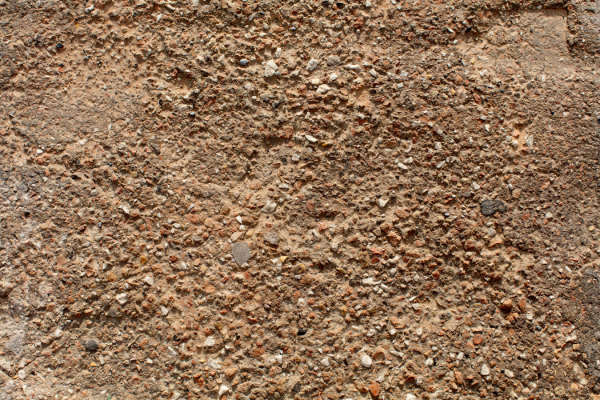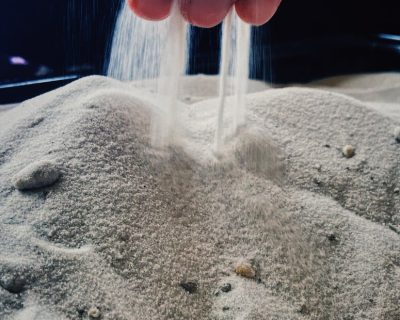
Sustainable Aggregate in Philippines Mining: Practices and Policies
The mining industry in the Philippines plays a crucial role in the country’s economy, with aggregates being a key resource. Aggregates, which include sand, gravel, and crushed stone, are essential in construction and infrastructure projects. However, the environmental impact of mining these materials has raised concerns over the years. This has led to a shift towards more sustainable practices and policies within the industry. In this article, we will delve into the importance of sustainable aggregates in the Philippines, the practices that promote environmental responsibility, and how RICHSON’S Trading is contributing to this essential transformation.
The Importance of Aggregates in the Philippines
Aggregates are the backbone of the construction industry in the Philippines. They are used in the production of concrete, asphalt, and other materials that are critical for building infrastructure such as roads, bridges, and buildings. The demand for these materials is continuously growing, driven by the country’s rapid urbanization and population growth.
However, the extraction of aggregates has significant environmental impacts, including habitat destruction, water pollution, and the depletion of natural resources. These concerns have led to a growing emphasis on sustainable practices in the industry.
Sustainable Mining Practices in Aggregates Extraction
1. Responsible Sourcing and Site Management
Sustainable mining begins with responsible sourcing and site management. This involves selecting mining sites that minimize environmental impact and implementing measures to restore ecosystems after mining operations have ceased. RICHSON’S Trading, a leading player in the aggregates industry in the Philippines, adheres to strict guidelines for site selection and management, ensuring that their operations are environmentally responsible.
2. Water Management and Conservation
Water is a critical resource in mining operations, and its management is a key aspect of sustainability. Sustainable aggregates mining practices include the use of water-efficient technologies, recycling of water within the operation, and proper treatment of wastewater before it is released back into the environment. RICHSON’S Trading has implemented advanced water management systems that reduce water consumption and protect local water sources from contamination.
3. Energy Efficiency and Carbon Footprint Reduction
The mining of aggregates is energy-intensive, contributing to greenhouse gas emissions. Sustainable practices in this area focus on improving energy efficiency through the use of renewable energy sources and modern equipment that consumes less power. RICHSON’S Trading has invested in energy-efficient machinery and renewable energy solutions to reduce their carbon footprint, aligning with global sustainability goals.
4. Community Engagement and Social Responsibility
Sustainable mining goes beyond environmental impact; it also involves social responsibility. Engaging with local communities, providing fair employment opportunities, and ensuring that the benefits of mining are shared equitably are essential components of sustainable practices. RICHSON’S Trading is committed to fostering positive relationships with the communities where they operate, supporting local development initiatives, and ensuring that their operations do not adversely affect the livelihood of the residents.
Policies Supporting Sustainable Aggregates in the Philippines
The Philippine government has recognized the need for sustainable mining practices and has implemented various policies to promote environmental stewardship in the industry.
1. The Philippine Mining Act of 1995
The Philippine Mining Act of 1995 serves as the legal framework for the mining industry in the country. It mandates the implementation of environmental protection and rehabilitation programs by mining companies. Under this act, companies like RICHSON’S Trading are required to submit and implement an Environmental Compliance Certificate (ECC) and a Final Mine Rehabilitation and Decommissioning Plan (FMRDP) to ensure that mining activities do not cause long-term environmental damage.
2. Environmental Impact Assessment (EIA)
The Environmental Impact Assessment (EIA) process is another critical policy tool used to assess the potential environmental impacts of mining projects. Before a mining project can proceed, it must undergo a thorough EIA, which includes public consultations and the identification of mitigation measures. RICHSON’S Trading follows this process diligently, ensuring that all their projects meet the required environmental standards.
3. The National Greening Program (NGP)
The National Greening Program (NGP) is a government initiative aimed at reforesting degraded lands and promoting sustainable land use practices. Mining companies in the Philippines are encouraged to participate in this program as part of their corporate social responsibility efforts. RICHSON’S Trading has actively supported the NGP by participating in reforestation projects and promoting sustainable land management practices in their mining operations.
RICHSON’S Trading: A Leader in Sustainable Aggregates Mining
RICHSON’S Trading has established itself as a leader in the sustainable mining of aggregates in the Philippines. The company is committed to implementing best practices that minimize environmental impact while maximizing the benefits to local communities and the economy.
1. Innovation in Sustainable Practices
RICHSON’S Trading continuously invests in research and development to innovate and improve their mining practices. From adopting state-of-the-art technologies for efficient resource extraction to pioneering methods for ecosystem restoration, the company is at the forefront of sustainable mining in the Philippines.
2. Commitment to Environmental Stewardship
The company’s commitment to environmental stewardship is evident in its rigorous adherence to environmental policies and its proactive approach to addressing environmental concerns. RICHSON’S Trading regularly audits its operations to ensure compliance with environmental standards and actively seeks out new ways to reduce its ecological footprint.
3. Corporate Social Responsibility
Beyond environmental sustainability, RICHSON’S Trading is dedicated to social responsibility. The company engages with local communities, supports education and livelihood programs, and ensures that their operations contribute positively to the well-being of the areas in which they operate.
Sustainable aggregates in the Philippines is not just a trend but a necessity for the future of the industry and the environment. With the increasing demand for construction materials, the need for responsible and eco-friendly mining practices has never been more critical. Companies like RICHSON’S Trading are leading the way by adopting sustainable practices, complying with stringent policies, and prioritizing environmental and social responsibility. As the industry moves forward, these efforts will be key to ensuring that the Philippines continues to grow while preserving its natural resources for future generations.




